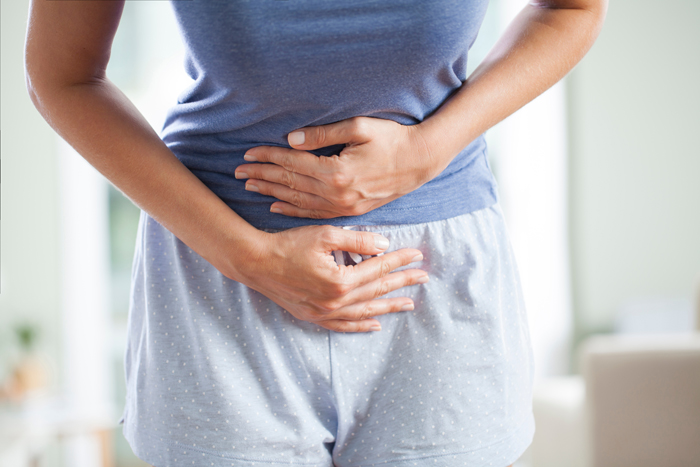Colorectal Cancer Surgery in Tardeo, Mumbai
The colon and rectum play a significant role in the body's digestive system. They are parts of the large intestine. Together, they comprise the bowel, which helps process and discard the food we eat.
Colorectal problems are issues related to and affecting the colon and the rectum together. They may impact the overall functioning of a healthy digestive system.

What Are Colorectal Problems?
Colorectal problems range from the mildest irritation and inflammation to fatal diseases. If diagnosed and treated on time, you may live a long healthy life.
A few serious colorectal problems that need focused medical care and treatment include colorectal cancer, diverticular disease, Crohn’s disease, colon polyps, colitis, and irritable bowel syndrome.
Types of Colorectal Problems
Colorectal problems range from several mild to rare diseases and certain major colorectal problems:
- Colorectal cancer (CRC): It is also known as colon cancer, rectal cancer, or bowel cancer.
- Diverticular disease: In diverticular disease, pouches known as diverticula develop along the digestive tract. They usually develop in the colon region of the large intestine. Diverticula can sometimes become inflamed and infected and cause diverticulitis.
- Crohn’s disease: Crohn’s disease is a chronic inflammatory bowel disease that affects the inner lining of the large intestine of the digestive tract. It causes swelling in the digestive tract. Crohn’s disease affects each individual differently. Some people show no symptoms, and the disease goes unnoticed, whereas others show chronic signs which never go away until treated. Crohn’s disease has a high risk of developing colorectal cancer.
- Colon polyps: Colon polyps are described as the small clump of cells formed and found on the colon and rectum’s lining, the end part of the large intestine. Colon polyps are not initially harmful but may develop into cancerous polyps and colorectal cancer with time.
- Colitis: Colitis is an inflammation of the colon. Often colitis is auto-immune and infectious. Colitis can be ulcerative colitis (UC), pseudomembranous colitis (PC), ischemic colitis (IC), microscopic colitis and allergic colitis. It can be treated via medications and treatment.
- Irritable bowel syndrome (IBS): IBS is the most common disorder affecting the large intestine. It is a chronic condition and even causes intestinal damage in a few individuals.
Symptoms of Colorectal Problems
Some clear signs indicate that you may have some colorectal problems. They are:
- Blood in your feces: Faeces is the waste that you excrete. If you experience blood in your stools/feces, it may be a sign of a colorectal issue.
- Persistent diarrhea or constipation: Diarrhea or constipation that lasts for a week or more can be a red flag for an underlying colorectal problem.
- Rectal bleeding: Bleeding from your rectum after you have had your bowel movements may be a symptom.
- Abdominal cramps and discomfort: You may experience some pain in your abdominal region and severe cramps resulting from a colorectal issue.
Causes of Developing Colorectal Problem
Colorectal problems can arise due to unhealthy diet and nutrition, but there are certainly other causes like:
- Age
- Heredity
- Excessive tobacco and alcohol intake
- Overweight and obesity issue
- Inactive lifestyle
When Should I Visit a Gastroenterologist for the Colorectal Problem?
If you exhibit the symptoms mentioned above, consider them a red flag and immediately rush to a hospital to consult with a gastroenterologist.
Your gastroenterologist may proceed with some tests to determine if it is due to a colorectal problem and come up with particular suggestions for the treatment.
Request an appointment at Apollo Spectra Hospitals, Tardeo, Mumbai.
Call 1860 500 2244 to book an appointment.
Diagnosis For Colorectal Problems
To ensure that the symptoms you are experiencing are due to some colorectal problem, your gastroenterologist may undergo specific tests like:
- Flexible sigmoidoscopy
- Fecal occult blood test (FOBT)
- Barium enema
- Colonoscopy
- Treatments For Colorectal Problems
Depending upon the type of disease and its severity, your gastroenterologist may treat your colorectal disease via:
- Surgery: Colorectal cancer and colon polyps require surgery to treat and remove them.
- Medication: Certain medications prove to be successful in dealing with the issues of irritation and inflammation. Medications can also help recover the usual bowel functioning.
- Diet and lifestyle management: For colorectal problems that develop due to unhealthy eating and body inactivity, a proper diet chart and lifestyle management can be helpful.
Conclusion
Early diagnosis and treatment of colorectal problems can increase the chances of a positive result. Although symptoms appear only in later stages, regular checkups and consultation with a doctor will increase the chances of an early diagnosis and treatment.
You may visit a gastroenterologist or a colorectal specialist for the treatment of colorectal disease.
Individuals of 50 years or older are at high risk of developing some colorectal diseases.
Colorectal diseases can be prevented by following a healthy diet, an active lifestyle, and regular medical checkups.
Symptoms
Our Top Specialities
NOTICE BOARD
CONTACT US
CONTACT US
 Book Appointment
Book Appointment


.svg)
.svg)
.svg)
.svg)








